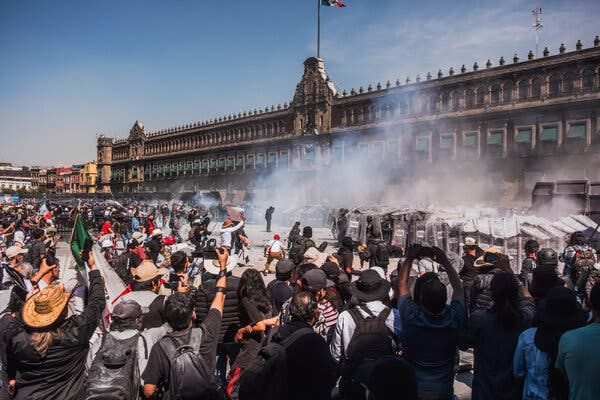The Zócalo’s Unquiet Echo
How Youthful Outcry Reclaims a Nation’s Soul
Walking through Mexico City’s Zócalo, I’m struck by the resonance of history, now amplified by Gen Z’s urgent cry against corruption. This isn’t just a protest; it’s a profound generational reawakening demanding we confront the moral decay threatening Mexico’s soul.
The Rhythmic Pulse of Protest in the Historic Square
When I see the thousands of young people filling Mexico City’s Zócalo, I’m not just seeing a news report; I’m witnessing history. This isn’t just a gathering; it’s a living echo, a rhythmic pulse of protest that resonates with generations past. What I perceive is a generation refusing to inherit silence, actively pushing back against the corruption and violence that has become a suffocating inheritance. The energy is palpable, a clear signal that the young are not content to passively observe the decline of their nation. It reminds me of Émile Zola’s keen observation:
A rebellion is not born of a sudden impulse, but from a long incubation, from a slowly ripening anger, from a profound sense of injustice.
– Émile Zola
This isn’t sudden; it’s a long overdue awakening.
Our Inherited Burden: Corruption’s Deep Roots and Moral Decay
It’s easy to feel detached from headlines about ‘corruption’ or ‘cartel violence,’ but for many young Mexicans, these aren’t abstract concepts—they are lived realities, shaping their daily choices, limiting their futures. The official stories often gloss over the pervasive nature of this decay, but the truth is, it’s a cancer eating away at the very fabric of society. It’s what Václav Havel might call ‘living within a lie,’ where the truth of systemic graft and its human cost is constantly denied or trivialized. This erosion of trust isn’t just political; it’s deeply moral, asking us: what kind of society allows such widespread suffering and then asks its citizens to look away?
We have to ask ourselves, as Hannah Arendt did when discussing collective responsibility, if we are not also culpable in our inaction. As Arendt noted:
The sad truth is that most evil is done by people who never make up their minds to be either good or evil.
– Hannah Arendt
This speaks volumes about the slow, incremental damage done by complacency.
Beyond the Square: A Cultural Reclamation in Action
What makes these protests so compelling is their deep connection to Mexico’s cultural spirit. This isn’t just about policy demands; it’s about reclaiming a sense of national integrity that feels lost. Think of the fierce independence of Frida Kahlo, whose art was an act of personal and political defiance. Her spirit, I believe, is alive in these young people. They are using their voices, their art, their digital platforms, and their collective presence to say: ‘This is our country, and we demand a future free from fear and corruption.’ It’s a powerful fusion of the timely and the timeless.
Go Deeper
Step beyond the surface. Unlock The Third Citizen’s full library of deep guides and frameworks — now with 10% off the annual plan for new members.
A Call for Moral Reckoning and the Path Forward
These young voices from the Zócalo are a mirror, reflecting not just Mexico’s struggle, but a universal human weakness—the temptation to compromise, to accept the unacceptable, to sacrifice long-term integrity for short-term comfort. Their courage is a potent reminder that the fight for justice is never truly over, and that moral authority often resides not in the halls of power, but in the streets, among those who refuse to be silenced. Their movement is a vital step towards demanding a moral reckoning, urging us all to consider our role in fostering a society built on truth, accountability, and genuine hope for the future.




Only one problem: The demonstration has been coopted by the extreme right partisans looking for corruption only in Sheilbum Government, and trying to make it a demonstration against Ms Sheinbum. As far as the LM newspapers informed, there were less youngsters than grown ups